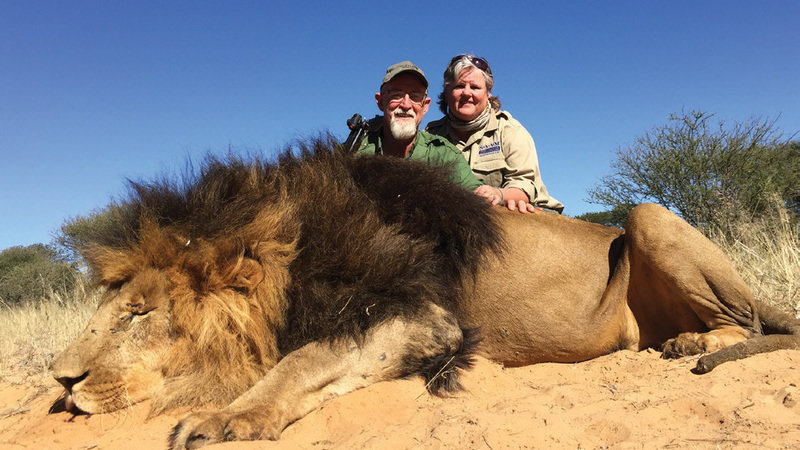- About
- Topics
- Picks
- Audio
- Story
- In-Depth
- Opinion
- News
- Donate
-
Signup for our newsletterOur Editors' Best Picks.Send
Read, Debate: Engage.
| November 25, 2019 | |
|---|---|
| topic: | Conservation |
| tags: | #Kasane Elephant Summit, #wildlife, #climate change, #Zimbabwe, #Africa |
| located: | Zimbabwe, Botswana |
| by: | Cyril Zenda |
Zimbabwe National Parks and Wildlife Management Authority spokesman Tinashe Farawo in mid-November revealed that at least 200 elephants have died in the vast Hwange National Park alone since October and other parks were also affected. Farawo also revealed that other animals such as lions, giraffe, buffalo and impala were also dying because of the drought conditions ravaging the southern African country that is reeling from the effects of climate change.
“Almost every animal is being affected,” Farawo said. “Of course, elephants are easily noticed during patrols or game drives, but some bird species are seriously affected because they can only breed in certain tree heights and those trees are being knocked down by elephants.”
Zimbabwe has an estimated 85,000 elephants, second only to neighbouring Botswana with more than 130,000. The government says it is struggling to cope with booming numbers of wild elephants and has been seeking to be allowed to sell its ivory stockpile and export live elephants to raise money for conservation efforts as well as ease congestion in the drought-affected parks.
President Emmerson Mnangagwa recently reacted with fury to the decision by the Geneva-based Convention on International Trade in Endangered Species (CITES) forum to deny the country, together with its neighbours Botswana and Namibia, the green light to trade in elephant ivory.
During a CITES meeting held in August, it was decided to retain the long existing ban on international trade in elephant ivory. The three countries are pushing for trade in ivory and other products from their wildlife resources.
“Europeans have consumed all their animals, but they want to set rules for us who have managed to conserve theirs!” fumed Mnangagwa. “Our wild animals are being discussed in Geneva, an irrelevant place to the animals… they bar us from killing our animals for selling ivory, but they want us to protect them from being poached. We are sitting on ivory stockpiles worth $600 million. It’s a lot of money we can use for big (wildlife conservation) projects,” said Mnangagwa, who went on to hint that Zimbabwe could pull out of CITES altogether over this emotive issue.
The Zimbabwean leader also suggested that the country – which is already controversially exporting live elephants – could unilaterally sell its ivory to China and Japan. Between 2016 and this year Zimbabwe exported about 100 elephants, mainly to China and the United Arab Emirates, raising more than $3 million for its conservation efforts.
In late June, Zimbabwe hosted a wildlife summit where the issue of trade in elephant products dominated. The 85,000 elephants in Zimbabwe’s parks are way above the country’s optimum carrying capacity of about 50,000.
Earlier in March, the leaders of Botswana, Zimbabwe, Namibia and Zambia met in Botswana for the Kasane Elephant Summit where they discussed their common problem of the growing burden of elephant overpopulation.
The general sentiment in these countries – which have the largest herds of elephants and other wild animals in the world – is that by being denied the right to trade in the products of some of these animals under CITES, they are in effect being punished for the success of their conservation efforts.
The southern African countries have always argued that by insisting on imposing a blanket ban on ivory trade as a solution to elephant poaching without basing the decision on scientific and other fact-based considerations, animal rights groups are exercising authority without responsibility within the 183-nation CITES framework.
“It is sad the CITES would rather see the elephants struggle for space and food and die of drought and starvation, than have the country sell them on time and make money,” wrote The Herald, Zimbabwe’s main State-owned daily in its editorial. “We will not be wrong to say that CITES has been captured and that CITES is fast becoming irrelevant to the elephants’ cause and indeed communities living in constant contact with the elephants.”
A few examples of wildlife management projects that the government says it will invest in using the proceeds of ivory vary from training rangers to erecting buffer zones for wildlife, to drilling boreholes to supply water to the sanctuaries, among others.
“In areas like Hwange (National Park), where the largest population of elephants is found, there is no water and that area depends on 100 percent borehole water”, Farawo explained.
The parks agency said it plans to move 600 elephants, two prides of lions and other animals from the Save Valley Conservancy in the South East of the country to less congested parks. A pack of wild dogs, 50 buffalo, 40 giraffes and 2,000 impalas also will be relocated.
According to Farawo, the animals have exceeded their ecological carrying capacity. “If the populations go unchecked, the animals will threaten the very ecosystem they depend on for survival.” A single elephant can knock down at least 1,500 trees every year and the effect of the excess population can be disastrous to the already fragile environment.
With a third of the country’s in desperate need of food aid, wild animals are the last the get the attention of the cash-starved government.
By copying the embed code below, you agree to adhere to our republishing guidelines.

